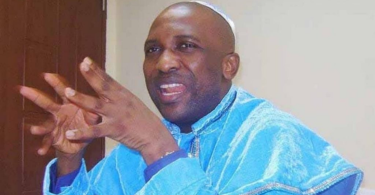‘Why our people don’t live in provinces affected by earthquake’ – Nigerians in Turkey Speaks
Around 4:17 am on Monday, February 6, 2023, while many residents in Turkey’s Kahramanmaras Province and Northwest Syria were still asleep, a 7.8 magnitude earthquake, the worst since 1999, struck the two countries, trapping thousands of residents under collapsed buildings. Less than 12 hours later, another earthquake measured at 7.6 tremors, struck the same region. As of February 10, 2023, more than 21,000 people have been confirmed dead with over 78,000 injured in the earthquake that affected some Northwest of Syria.
Turkey is one of the world’s most active earthquake zones, having witnessed about eight Strong (magnitude of 6) and Major (magnitude of 7) earthquakes since 1999 which have resulted in the death of over 30,000 people. In August 1999, a 7.6 earthquake in Istanbul, Turkey, claimed 17,500 lives…….Continue Reading
Earthquakes are caused by the movement of tectonic plates in the Earth’s crust. When two plates grind against each other, tremendous amounts of pressure can build up, which when released can cause the affected area to vibrate, resulting in an earthquake.
Abdullah Saka, a Nigerian student based in Istanbul, the capital of Turkey, told Neusroom that Monday’s disaster affected 10 provinces in Turkey that borders Syria.
A three-month State of emergency was declared on the 10 most hit provinces by Turkish President Recep Tayyip Erdogan on Tuesday, February 7, 2023. These provinces are Kahramanmaras, Adana, Adiyaman, Osmaniye, Hatay, Kilis, Malatya, Sanliurfa, Diyarbakir, and Gaziantep.
While Saka told Neusroom that Istanbul was not one of the affected regions, his academic session scheduled to reopen on Monday, February 13, 2023, has been postponed due to the disaster.
Saka is an architectural student at Beykent University, Istanbul, who moved to the country a year ago. Before he began his studies at the University in September 2023, Saka undertook a one-year language course in Turkish, to help equip himself for life in Turkey.
Nigerians in Turkey
“It’s good to learn Turshish before studying here because it will be difficult to live here without knowing their language,” Saka said.
“I spent one year learning Turkish and just started my studies in September 2022. I finished my first semester in January 2023. We are supposed to resume this Monday but because of the earthquake, they have to postpone the resumption date.
Born in Ibadan, Oyo State, Saka attended the Federal University of Technology, Akure, before relocating to Turkey to study Architecture. Since his arrival, Saka has witnessed a minor tremor in October 2022 that merely vibrated the ground.
Richter scales are used to measure the magnitude of an earthquake. Although earthquakes registering four magnitudes are considered minor, earthquakes registering a magnitude of eight and above can result in the near destruction of the affected area. However, a seven-magnitude earthquake can cause significant loss of life and property. In 2010, Haiti was struck with a 7-magnitude earthquake that killed 222,570 people, injured over 300,000 people, and caused $11 billion in damage.
Saka said that many Nigerians in Turkey prefer to live in Istanbul, Turkey’s largest city, because of job opportunities and the higher chances to communicate in English.
“It is difficult to see Nigerians in those regions. First, because of job opportunities, many Nigerians who stay in Turkey live in Istanbul, Ankara, or Tokat. Language is another factor when Nigerians live in Istanbul or Ankara. In those cities (affected by the earthquake), it s difficult to see someone that speaks English. So, it will be hard to find work without knowing how to communicate in Turkish,” Saka said.
Tosin Osunnuyi, a humanitarian officer in Turkey also corroborated Saka’s claim.
Osunnuyi whose apartment was affected by the aftershock told Neusroom that Nigerians hardly live in the areas affected by the disaster.
“For the months I’ve lived there, I’ve not seen a huge Nigerian community,” Osunnuyi said.
In some Turkey Universities, courses are only offered in the local language, Turkish, the national language of Turkey, and Northern Cyprus which is spoken by an estimated 80 million people. This language barrier is believed to be one of the reasons why Nigerians hardly seek admission to schools that teach only in the local language. However, private and public Universities in Istanbul and some other major cities like Ankara and Tokat offer English and Turkish courses.
Since Monday’s earthquake, Turkey has been hit by more than 100 aftershocks of magnitude 4 and greater, all within the 10 provinces.
Prince E Magboh, President of Nigerian Community Turkey, who is yet to respond to a message by Nuesroom, said via his Facebook on February 8, 2023, “a response line has been established for all Nigerians living in the affected cities to make their case known for help to be sent to them.”
While President Muhammadu Buhari said on February 6, 2023, that Nigeria is willing to support Turkey and Syria “in any way possible,” Neusroom was unable to determine if any Nigerian was directly affected by the earthquake.
Source: Neusroom











